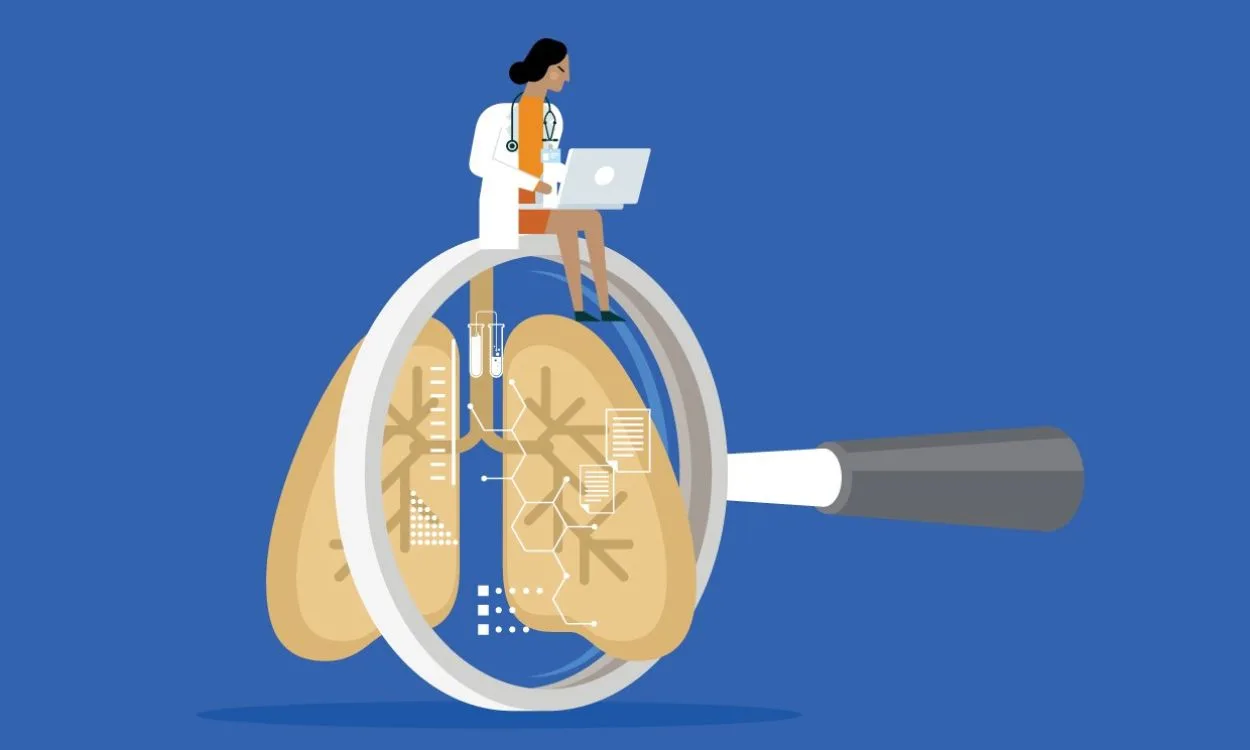What are some common misconceptions about lung health?
Misconceptions about lung health can lead to misunderstandings and potentially harmful habits. To ensure that we take care of our lungs properly, it is important to debunk these misconceptions and understand the truth behind them.
Here are some common misconceptions about lung health:
- Only smokers are at risk of lung diseases: While it is true that smoking is a major risk factor for lung diseases such as lung cancer and chronic obstructive pulmonary disease (COPD), it is not the only cause. Non-smokers can also develop lung diseases due to exposure to environmental pollutants, occupational hazards, genetic factors, and respiratory infections. It is essential for everyone, regardless of smoking history, to prioritize lung health.
- Indoor air quality doesn’t affect lung health: Many people assume that being indoors protects them from air pollution. However, indoor air can be even more polluted than outdoor air, especially in poorly ventilated spaces. Indoor pollutants such as dust, pet dander, mold, and volatile organic compounds (VOCs) from household products can accumulate and negatively impact lung health. Proper ventilation, regular cleaning, and avoiding smoking indoors are important for maintaining good indoor air quality.
- Children are not affected by secondhand smoke: Secondhand smoke is harmful to people of all ages, but children are particularly vulnerable. Exposure to secondhand smoke increases the risk of respiratory infections, asthma, sudden infant death syndrome (SIDS), and other respiratory problems in children. It is crucial to create a smoke-free environment for children to protect their lung health.
- Masks do not protect against respiratory infections: Wearing masks has been a topic of debate, but scientific evidence supports their effectiveness in reducing the transmission of respiratory infections. Masks, especially when used properly and combined with other preventive measures like hand hygiene and social distancing, can help protect against respiratory viruses, including COVID-19. It is important to wear masks in crowded and poorly ventilated spaces to safeguard lung health.
- Exercise is bad for people with lung conditions: Some individuals with lung conditions may fear that exercise will worsen their symptoms or strain their lungs. However, regular exercise, under proper guidance, is beneficial for lung health. Exercise helps improve lung capacity, strengthens respiratory muscles, and enhances overall fitness. It is important for individuals with lung conditions to consult healthcare professionals and participate in appropriate exercise programs tailored to their needs.
- E-cigarettes are a safe alternative to smoking: E-cigarettes, also known as vapes or electronic nicotine delivery systems, are often marketed as a safer alternative to traditional cigarettes. However, they still pose risks to lung health. E-cigarettes can contain harmful chemicals, including nicotine, volatile organic compounds, and heavy metals. Vaping has been linked to lung injuries and respiratory symptoms. Quitting smoking altogether is the best option for improving lung health.
- Coughing is a normal sign of aging: While it is true that coughing can be more common in older adults, it is not a normal part of aging. Chronic coughing could indicate an underlying lung condition, such as asthma, COPD, or lung cancer. It is important to consult a healthcare professional if persistent coughing occurs to rule out any serious lung diseases.
- Air pollution is only a concern in urban areas: Air pollution affects both urban and rural areas. While urban areas may have higher levels of pollution due to industries, vehicle emissions, and population density, rural areas can also be affected by agricultural practices, biomass burning, and indoor pollution from cooking fuels. It is important to address air pollution at both the individual and community levels to protect lung health.
By understanding and debunking these common misconceptions, we can take proactive steps to prioritize our lung health. Remember, taking care of our lungs is crucial for overall well-being and longevity.
Interested in optimizing your lung health? Download the Fitpaa app!
If you are committed to achieving your health and fitness goals, including optimizing your lung health, the Fitpaa app is here to help. Fitpaa’s personalized approach, backed by AI-driven technology and a team of experts, can guide you towards improved lung health and overall well-being.
With the Fitpaa app, you can:
- Take the Metabolism Assessment to understand your current health condition and identify any factors that may be impacting your lung health.
- Receive your personalized Fitpaa Capsule that includes a comprehensive plan consisting of medical therapy, exercise therapy, nutrition therapy, and cognitive behavioral therapy.
- Benefit from Fitpaa’s Realtime Guidance technology, which incorporates habit-building strategies and timely nudges to keep you motivated and on track with your lung health goals.
- Access a virtual workout trainer, diet tracker, performance tracking, progress tracking, and other tools to support your journey towards optimal lung health.
- Receive regular reviews and consultations from a team of fitness planners, nutritionists, fitness trainers, and doctors to ensure you are making progress and making any necessary adjustments.
Fitpaa is dedicated to helping you achieve your health and fitness goals with guaranteed results. With a 7-day risk-free trial, you can experience the benefits of the Fitpaa app and see the positive impact it can have on your lung health and overall well-being. Don’t miss out on the opportunity to optimize your lung health and lead a healthier life. Download the Fitpaa app now and take the first step towards a better, healthier you!
Note: Fitpaa app and services are customized for the Indian population, with metrics and guidance tailored to Indian standards and lifestyle.









